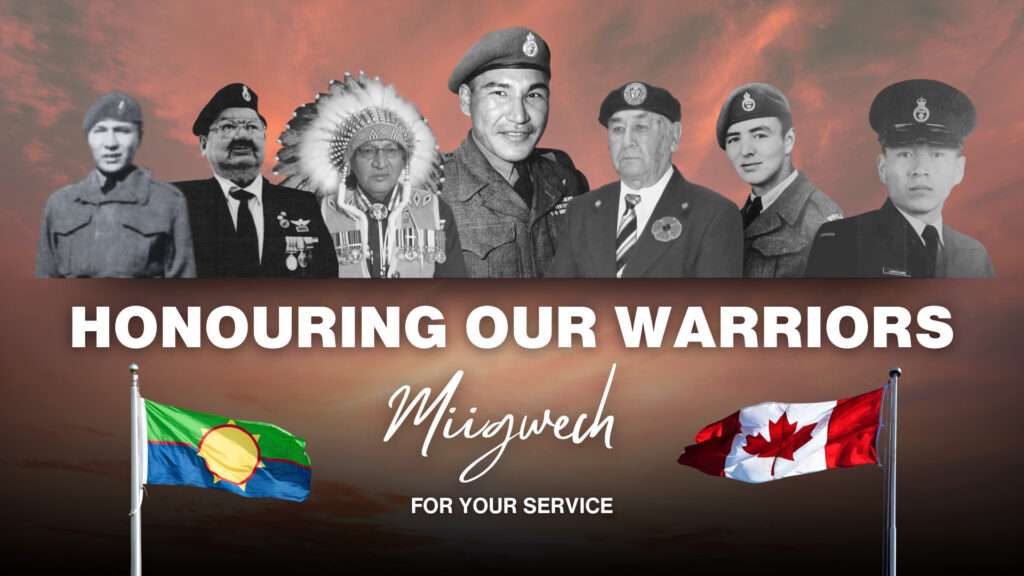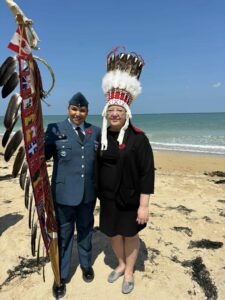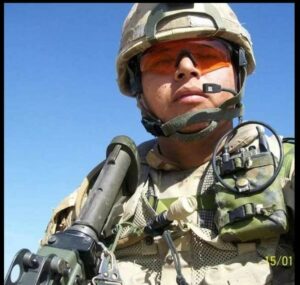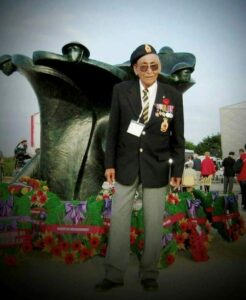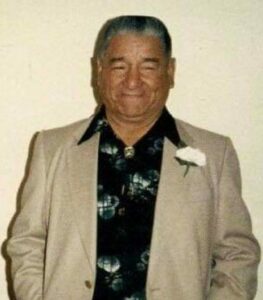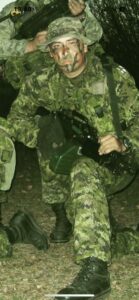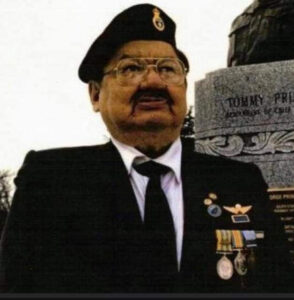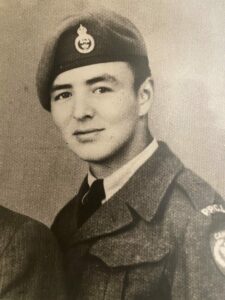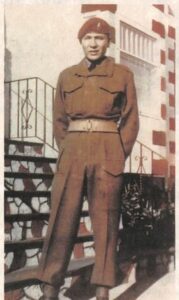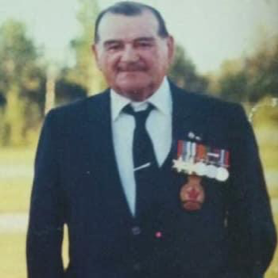No products in the cart.
Honouring Our Warriors: Celebrating the Legacy of Courage, Service, and Sacrifice of Treaty One Veterans
In honour of Treaty One’s Indigenous Veterans Campaign, we are privileged to share the remarkable stories of Indigenous veterans who have dedicated their lives to the service of both their communities and Canada. These veterans have stood on the frontlines, often facing immense challenges, and their service stories reflect a deep commitment to protect and uplift their people. This campaign is a heartfelt tribute to their bravery and their legacies, which continue to inspire generations. Below, we highlight the journeys of each veteran, honoring their unique contributions and sacrifices.
Sergeant Jessica Spence – Peguis First Nation
Sergeant Jessica Spence’s journey with the Canadian Armed Forces began in 2006, when she graduated from the Royal Canadian Navy’s Raven Program. She went on to join the regular force in 2009 as a Navy Culinary Technician, dedicating over 13 years of service to the Navy. Throughout her career, she served on several naval ships, including HMCS Vancouver, HMCS Ottawa, HMCS Winnipeg, and HMCS Oriole.
Sergeant Spence spent more than 360 days at sea, with one significant deployment to the Mediterranean aboard HMCS Vancouver. Her service during this mission earned her two NATO medals. To date, she has received three service medals, including the Canadian Forces Decoration medal.
In January 2024, Sergeant Spence transitioned to the Air Force, where she now serves as the second-in-command of kitchen operations with the 17 Wing Mission Support Squadron in Winnipeg. A highlight of her career came when she carried the CAF Eagle Staff in Normandy, France, during the 80th-anniversary commemoration of D-Day, a testament to her dedication and service.
Corporal Daniel Sinclair – Brokenhead Ojibway Nation
Corporal Daniel Sinclair’s path in the Canadian Armed Forces began in 2006 when he joined the military as a member of the 1 Military Police Regiment. Over the course of his 10-year career, Daniel earned a distinguished reputation for his service, notably during his deployment to Afghanistan in 2009. During his nine-month mission, he earned the Campaign Star Medal and the Bar for his extended overseas service.
One lighthearted memory from his time in Afghanistan recalls how members of the Afghan National Army mistook him for a boy due to his inability to grow a beard—a reminder of the human side of his brave service in challenging circumstances.
After his military service, Daniel returned to his home community, Brokenhead Ojibway Nation, where he continues to serve with the same strength and pride that guided him in the military.
Chief George Myran – Long Plain First Nation
Chief George Myran of Long Plain First Nation served courageously in the Canadian military during World War II and later went on to become a respected leader in his community. His service during the war left an indelible mark, and his contributions to Long Plain continued long after his military career ended.
After serving in the military, Chief Myran dedicated eight years to his community as a band councillor before taking on the role of Chief of Long Plain. His leadership extended beyond the local level; he represented Long Plain veterans and made a pilgrimage to France to honour First Nation veterans who served overseas.
Chief Myran’s legacy is one of strength, commitment, and pride, both as a veteran and as a community leader.
Chief Rufus Prince – Long Plain First Nation
Chief Rufus Prince, a World War II veteran from Long Plain First Nation, is remembered for his exceptional service and leadership. During the Italian campaign of WWII, Chief Prince’s bravery and dedication defined his military service and his subsequent contributions to Indigenous communities.
After returning from the war, Chief Prince became a pillar of his community, eventually being elected Chief of Long Plain. He also served as Vice-President of the Manitoba Indian Brotherhood and co-founded the Dakota Ojibway Tribal Council. In 1977, he established Canada’s first Indigenous law enforcement agency, the Dakota Ojibway Police Force, a groundbreaking initiative in Indigenous governance.
Chief Prince’s legacy continues to inspire, from his military courage to his role in advancing Indigenous rights and justice.
Doug Tiyza – Peguis First Nation
Doug Tiyza of Peguis First Nation answered the call to serve in the Canadian Armed Forces in 2000, joining the Bold Eagle Program. He later joined the 2nd Battalion, Princess Patricia’s Canadian Light Infantry, just before the tragic events of 9/11. Doug deployed twice to Afghanistan, first in 2002 and again in 2006.
During his second tour, Doug was critically injured in a mortar attack, which required an emergency evacuation and treatment in Germany before returning to Canada. Despite the physical and emotional toll, Doug’s courage and determination were recognized with the Sacrifice Medal, the Afghanistan Campaign Star, and the South-West Asia Service Medal.
Doug’s service exemplifies resilience and the strength of the human spirit, and he continues to inspire others with his unwavering commitment to his country.
William George Mann – Sagkeeng First Nation
William George Mann, born in 1930 in Sagkeeng First Nation, is remembered as a courageous Anishinaabe Ogichidaa who served in the Korean War. His military service was marked by extraordinary bravery, earning him the Oak Leaf for bravery, the Korea Medal, the UN Medal, the Volunteer Medal, and the Coronation Medal, which he received while serving in London for Queen Elizabeth II’s coronation in 1953.
After his service, Mann co-founded the Manitoba Aboriginal Veteran’s Association and became its first president. His contributions continued at the national level, where he worked tirelessly to ensure that Indigenous veterans were recognized for their sacrifices. Today, his legacy lives on in his community and his country, reminding us of the sacrifices made for freedom and justice.
Leon Xavier Fontaine – Sagkeeng First Nation
Leon Xavier Fontaine, a member of Sagkeeng First Nation, served with distinction in the Korean War. Born in Sagkeeng and a survivor of the Fort Alexander residential school, Leon enlisted at the age of 19, answering the call to serve his country during one of the most turbulent times in history.
Leon endured injuries in the line of duty and, after his discharge, transitioned to a civilian life where he became an advocate for the rights of First Nations veterans. As Vice-President of the Manitoba Aboriginal Veterans Association, he worked tirelessly to ensure that veterans received the benefits they deserved. His 12-year service as a representative for Manitoba First Nations at Ottawa’s annual Remembrance Day services further cemented his legacy as a champion for justice and Indigenous rights.
Arthur Meeches – Long Plain First Nation
Arthur Meeches of Long Plain First Nation was born in 1933 and answered the call to serve during the Korean War, joining the 1st Battalion Princess Patricia’s Canadian Light Infantry Airborne Unit. After his military discharge in 1954, Arthur made invaluable contributions to his community as Manitoba’s first Indigenous Indian Agent, later serving as Band Administrator for both Long Plain and Dakota Plains.
Arthur’s life was also marked by his dedication to education and leadership. He taught survival skills to students and cadets and worked to break down barriers for Indigenous people. His story is one of courage, resilience, and a lasting impact on his community.
Corporal Clifford Longclaws – Long Plain First Nation
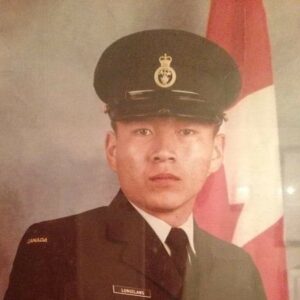 Corporal Clifford Longclaws of Long Plain First Nation was a survivor of Brandon Residential School and enlisted with the Princess Patricia’s Canadian Light Infantry (PPCLI) in 1982. Over the course of his career, he rose to the rank of Corporal in the 3rd Battalion before his honorable discharge in 1990.
Corporal Clifford Longclaws of Long Plain First Nation was a survivor of Brandon Residential School and enlisted with the Princess Patricia’s Canadian Light Infantry (PPCLI) in 1982. Over the course of his career, he rose to the rank of Corporal in the 3rd Battalion before his honorable discharge in 1990.
After his service, Clifford became an entrepreneur, founding a roofing business with his brothers, and later became Head Safety Officer at PCL Construction Canada Inc. Known for his humor and positivity, Clifford inspired those around him to rise above challenges and lead with respect and strength.
Today, Clifford’s legacy lives on through his family, his work, and the countless lives he touched during his service and beyond.
Felix Ambrose Fontaine – Sagkeeng First Nation
Felix Ambrose Fontaine, born in Sagkeeng First Nation, served in World War II as part of Lord Strathcona’s Royal Canadian Horse Regiment. After receiving training, he fought alongside British forces in North Africa and Italy, where he was wounded in action. Despite suffering partial hearing loss, Felix returned to the frontlines, earning multiple medals, including the Eastern Star, Italy Star, Canadian Volunteer Service Medal, and the King George VI Medal.
After the war, Felix dedicated his efforts to reshaping the local education system in Sagkeeng and served as a community councillor. His life is a testament to courage and resilience, as well as a deep commitment to serving both his country and community.
Delmar Peters – Swan Lake First Nation
Delmar Peter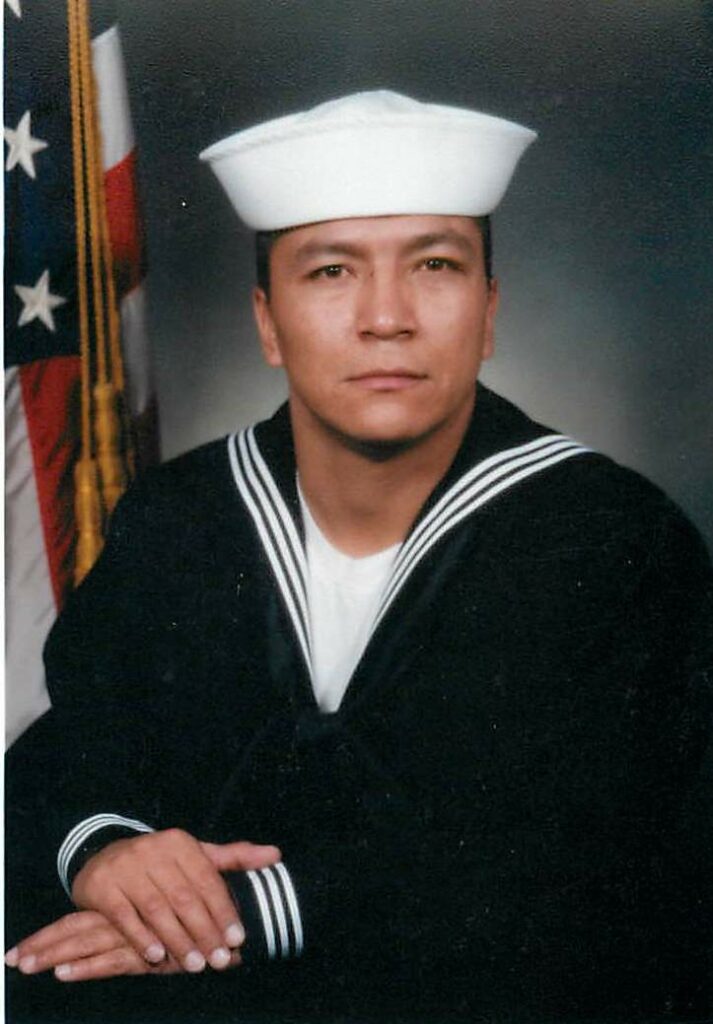 s, a proud member of Swan Lake First Nation, embarked on his military career in 1988 with the Canadian Armed Forces, serving in the First Canadian Horse Artillery at Shilo Base, Manitoba. His commitment to service took him to new heights when he joined the United Nations Peacekeeping Force in Cyprus in 1993.
s, a proud member of Swan Lake First Nation, embarked on his military career in 1988 with the Canadian Armed Forces, serving in the First Canadian Horse Artillery at Shilo Base, Manitoba. His commitment to service took him to new heights when he joined the United Nations Peacekeeping Force in Cyprus in 1993.
Driven by a passion for the medical field, Delmar relocated to San Diego, training as a medical technician before joining the United States Navy Reserve. By 2002, he had completed intensive training with the U.S. Marine Corps and was deployed to Iraq, serving in the Surgical Shock Trauma Platoon. Stationed near Fallujah, he provided critical care to young soldiers under challenging conditions, exemplifying his bravery and dedication.
Despite the harsh realities of war, Delmar’s spirit remained resilient. Upon his return, his community honored him with a plaque, celebrating his leadership and contributions to both the Canadian and U.S. military.
Today, we remember Delmar Peters with deep gratitude for his unwavering service, reflecting on the sacrifices he made and the impact of his courageous journey.
If you have a loved one from a Treaty One community who has served in the military, we would be honoured to hear and share their story. Please feel free to send their story, along with a photo, to media@treaty1.ca. Together, let’s continue to celebrate and remember the courage and dedication of Treaty One veterans.

